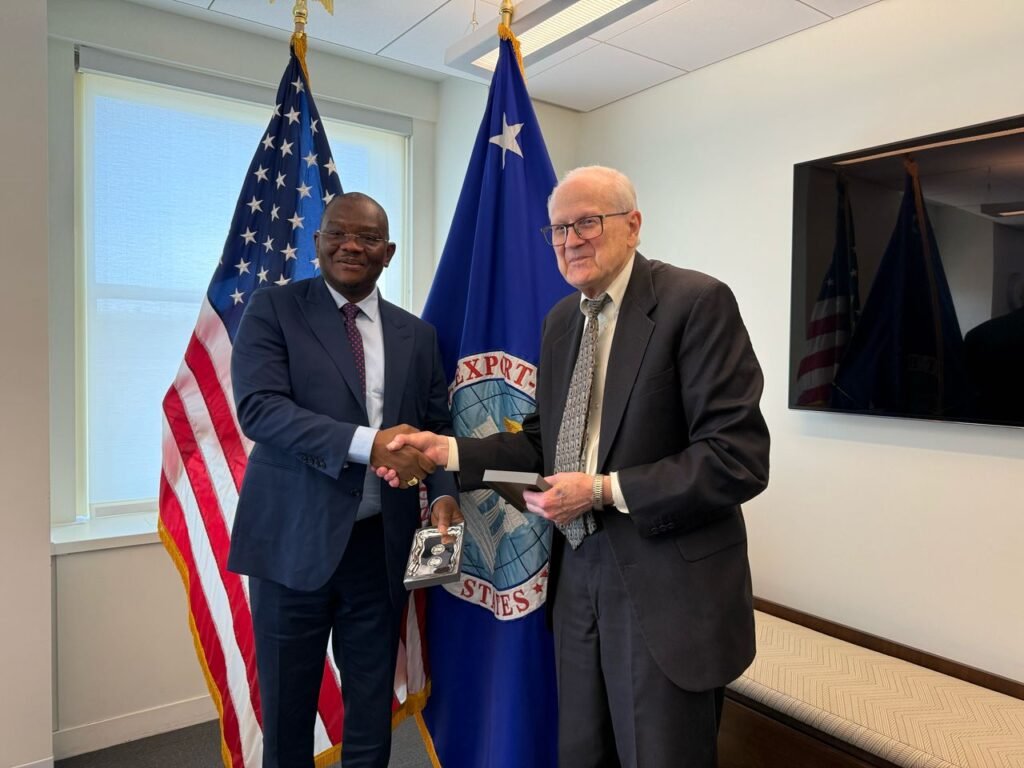Hot!
The Bawumia Doctrine

Doctrines are seen as a set of principles that guide an administration. While the idea of doctrines has been applied in different parts of the world, applications of the concept to the Ghanaian context are lacking. As Ghana once again engages in a leadership contest, this piece seeks to assess Dr Bawumia and the doctrines that guide his worldview.
One of the major doctrines that characterizes Dr Bawumia’s leadership is Excellence. Excellence has always been the hallmark of the Bawumia proposition. Ingrained in his very nature, it has always been a governing principle in his personal, professional, and public life. Throughout his life, the Vice president has been governed by the creed that if you worked hard and did your utmost best with dedication and effort, you will rise to the top. It is the underlying belief that we can all rise to prosperity through hard work and determination. In Bawumia, meritocracy will be a major value of our national endeavour.
Ghana will have a leader who believes in the pursuit of excellence and not mediocrity. We will be a nation of merit, hard work and reward. Mediocrity will be on the back burner with the pursuit of excellence brought to the frontline of national politics and national life.
Dr Bawumia’s leadership framework is also based on innovation. He is a thinker willing to embrace the future and new ways of doing things. His governance philosophy is anchored on the belief in innovation and creativity to propel the economy and other facets of governance and society to give Ghanaians a better economy, better life and better society. If Ghana and the African continent is to achieve real transformation in the socio-economic fortunes of their people, innovation will be key. Innovation –
with digitization as the anchor—will accelerate our march towards sustainable development, unlock the potential of all and sundry, empower the youth, transform every single sector in the country and usher Ghana into an era of reform and optimization of human and natural resources.
The idea of digitization is predicated on the belief that it can lead to efficient social services, better quality of life, curb corruption, help generate a better economy and the creation of a more inclusive society. Beyond the hardware structure of digitization, his unyielding focus in this area demonstrates something deeper: the belief in not subscribing to tradition or convention; the desire to banish an impossibility mindset from Ghanaian society; the audacity to dream; the belief in ideas not insults; the goal of producing efficiency; and the overall transformation of society.
The next doctrine is one predicated on empathetic leadership. All over the world, there is an empathy deficit. Dr. Bawumia’s work on social interventions, vulnerable and downtrodden in society such as the lepers, demonstrates a leader with enormous amounts of compassion and empathy. He has sometimes partnered with the well-known Rev. Fr. Andrew Campbell to bring joy and relief to some of the most neglected in our society. Dr Bawumia with Fr Campbell share a common value of love, empathy, and concern for humanity, especially the less privileged in society. This Vice President brings to leadership not just intellectual but empathetic capital. This is important because in the high-octane, fast-driven, complicated, and sometimes combustive world of politics, it is easy to be removed from the rest of society or lose one’s sense of empathy. A leader with such a natural predisposition is less likely to easily forget about the sufferings, needs and everyday reality of his people and thus remain grounded with people-centred policies.
Decency and civility also characterize the political ideology and style of the Vice President. This constitutes the last component of the present doctrinaire analysis. His speech, language and communicative style is predicated on data and not given to the insults and intemperate language that has often undermined the quality of public discourse and sometimes fanned the flames of tension and conflict. Within this doctrine are several components such as humility and respect for all. In other words, a humble leader is likely to listen to his people and take advice as well as suggestions. This is noteworthy. It indicates that he has the right temperament and judgement to become leader of the nation. This doctrine and belief in civility, civil discourse and civic culture will ensure that Ghana’s politics is elevated giving room for intelligent and intelligible discourse that shall move this country forward.
By Dr Etse Sikanku
Hot!
GEXIM deepens relations with US EXIM Bank

A management team of the Ghana Export – Import Bank (GEXIM) led by the Acting Chief Executive, Sylvester Mensah met with the leadership of the Export–Import Bank of the United States (US EXIM) on Wednesday April 23, 2025 in Washington DC, United States of America.
The Acting President and Chairman of US EXIM, Mr. James C. Cruse and Vice President, International Relations, Ms. Isabel Galdiz received the GEXIM delegation, which included Deputy CEO for Banking, Mr. Moses Klu Mensah and Head of International Cooperation, Mr. Jonathan Christopher Koney at the headquarters of US EXIM.

The meeting offered the GEXIM team the opportunity to share the strategic direction of the Bank in line with the resetting agenda of the President of the Republic, His Excellency John Dramani Mahama for the repositioning of the Ghanaian economy into an export-led one by providing the requisite investment to Ghanaian businesses.
Mr. James C. Cruse expressed US EXIM’s eagerness to deepen its existing relations with GEXIM and proposed the signing of a new Cooperative Framework Agreement following the expiration of a Memorandum of Understanding signed in 2019 to utilize US EXIM’s medium term loan guarantees to procure machinery by GEXIM for qualified Ghanaian Small and Medium-sized Enterprises (SMEs).
Mr.Sylvester Mensah thanked the Acting President and Chairman of US EXIM for hosting the GEXIM delegation and reaffirmed the Ghanaian government’s commitment to strengthening trade and investment between Ghana and its global partners for economic transformation of Ghana with GEXIM playing a pivotal role.
The two teams will be meeting on the sidelines of the 2025 US EXIM Annual Conference on 29th and April 30, 2025 to explore possible areas of collaboration and matching Ghanaian businesses to American companies. The meeting ended with an exchange of gifts.
Hot!
Many SOEs have been used as mere instruments for personal wealth accumulation –Pres.Mahama

President John Dramani Mahama has expressed concern over the misuse of State-Owned Enterprises (SOEs) for personal financial gain by individuals in leadership positions.
Speaking during a meeting with Chief Executives of specified entities under the State Interest and Governance Authority (SIGA) on Thursday, March 13, the President directly attributed the dire state of SOEs to their leadership, accusing chief executives, management teams, and governing boards of prioritising personal enrichment over organisational efficiency.
He pointed to bloated budgets, unjustified allowances, and unnecessary expenditures as factors draining public funds while SOEs continue to rely on government bailouts.
“Many SOEs have been used as mere instruments for personal wealth accumulation by appointees. The chief executives, management, and boards of these enterprises are responsible for this situation. Some SOEs have become perennial loss-makers, draining public funds with bloated budgets, unjustified allowances, and unnecessary expenditures while relying on government bailouts as if entitled to them. Many of these entities are at their lowest point in the entire history of the Fourth Republic,” he said.
President Mahama further noted that many SOEs have been plagued by inefficiencies, corruption, and mismanagement, leading to consistent financial losses. He cited the 2023 State Ownership Report by the State Interests and Governance Authority (SIGA), which highlighted systemic inefficiencies and wasteful expenditures within these entities.
He therefore reaffirmed his commitment to reforming under-performing SOEs and ensuring they serve national interests.
He warned that loss-making SOEs will no longer be tolerated and will either be merged, privatised, or closed.
“I will assess you based on your performance. If you do not align with the pace of the reset agenda, you may be asked to step aside. If that adds to the horror movie, so be it,” he added.
Source: Myjoyonline.com







